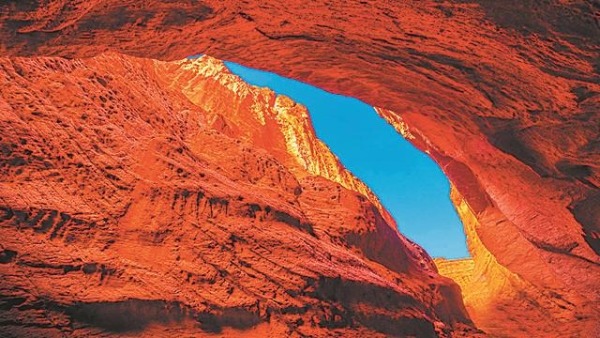 |
|
[Photo provided to China Daily] |
Southern Xinjiang
Eight days, 2,465 km
What to see:
Bayanbulak grassland
Bayanbulak means "abundant spring" in Mongolian. It is the second-largest grassland in China. A winding river flows through the middle section. When the sun reaches a certain height, people can see its reflection at every turn of the river. To add more romance to the grassland, it is the highest-altitude breeding ground for swans in the world. Every year, when the snow melts and flowers bloom, thousands of swans and other migrant birds fly in from India and Africa.
Kuqa Grand Canyon (photo above)
The red sandstone walls in the canyon twist at every turn, bouncing light in different ways. Some have likened it to Antelope Canyon in Arizona, United States. It's best to come in the late afternoon, during the "golden hour" of the sun's light.
Kizil thousand-Buddha caves
The caves are said to comprise the earliest major Buddhist cave complex in China, having been developed between the third and eighth centuries. There are 236 cave temples in Kizil. Although the site has been damaged and looted by explorers from Europe, Japan and the US, around 5,000 square meters of wall paintings remain.